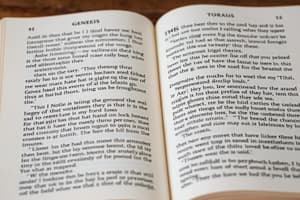Podcast
Questions and Answers
According to the documentary hypothesis, how many originally independent documents were compiled to form the Pentateuch?
According to the documentary hypothesis, how many originally independent documents were compiled to form the Pentateuch?
- Two
- Four (correct)
- Three
- Five
When was the classical documentary hypothesis almost universally accepted?
When was the classical documentary hypothesis almost universally accepted?
- In the 5th century BCE (correct)
- In the 10th century BCE
- In the 9th century BCE
- In the 7th or 8th century BCE
Which hypothesis challenged the supplementary hypothesis in the mid-19th century?
Which hypothesis challenged the supplementary hypothesis in the mid-19th century?
- The fragmentary hypothesis
- The Mosaic authorship hypothesis
- The neo-documentary hypothesis
- The older documentary hypothesis (correct)
Who formulated the older documentary hypothesis in the mid-18th century?
Who formulated the older documentary hypothesis in the mid-18th century?
When did Julius Wellhausen publish Geschichte Israels, Bd 1?
When did Julius Wellhausen publish Geschichte Israels, Bd 1?
When do modern scholars generally believe the completed Torah was produced?
When do modern scholars generally believe the completed Torah was produced?
What is the revised neo-documentary hypothesis based on?
What is the revised neo-documentary hypothesis based on?
What was the Mosaic authorship of the Torah?
What was the Mosaic authorship of the Torah?
Why have modern scholars become more circumspect in how they use the Old Testament?
Why have modern scholars become more circumspect in how they use the Old Testament?
Flashcards
Documentary Hypothesis (DH)
Documentary Hypothesis (DH)
A model explaining the Torah's origins as a compilation of independent documents, not a unified text from one author.
Sources of the Pentateuch
Sources of the Pentateuch
Four independent sources (J, E, D, P) that were joined together by editors or 'redactors'.
Johann Eichhorn
Johann Eichhorn
A German scholar who formulated the 'older documentary hypothesis' that Genesis comprised of two identifiable sources: J and E.
Hermann Hupfeld
Hermann Hupfeld
Signup and view all the flashcards
Julius Wellhausen
Julius Wellhausen
Signup and view all the flashcards
Neo-Documentary Hypothesis
Neo-Documentary Hypothesis
Signup and view all the flashcards
Mosaic Authorship Rejection
Mosaic Authorship Rejection
Signup and view all the flashcards
Study Notes
Hypothesis to explain the origins and composition of the Torah:
- The documentary hypothesis (DH) is a model used by biblical scholars to explain the origins and composition of the Torah (or Pentateuch, the first five books of the Bible), which were not the unified text expected from a single author.
- The DH posited that the Pentateuch is a compilation of four originally independent documents: the Jahwist (J), Elohist (E), Deuteronomist (D), and Priestly (P) sources, joined together at various points in time by a series of editors or "redactors."
- The classical documentary hypothesis, almost universally accepted for most of the 20th century, saw J dated to the Solomonic period (c. 950 BCE), E to the 9th century BCE, D to just before the reign of King Josiah, in the 7th or 8th century, and P to the time of Ezra in the 5th century BCE.
- The consensus around the classical documentary hypothesis has now collapsed, with a revival of interest in "fragmentary" and "supplementary" models, frequently in combination with each other and with a documentary model.
- Modern scholars generally see the completed Torah as a product of the time of the Persian Achaemenid Empire (probably 450–350 BCE), although some would place its production as late as the Hellenistic period (333–164 BCE).
- The Mosaic authorship of the Torah had been largely rejected by leading scholars by the 17th century, with many modern scholars viewing it as a product of a long evolutionary process.
- In the mid-18th century, Johann Eichhorn formulated the "older documentary hypothesis": the idea that Genesis was composed by combining two identifiable sources, J and E. The number was later expanded to three when Wilhelm de Wette identified the Deuteronomist as an additional source found only in Deuteronomy.
- The supplementary hypothesis was dominant by the early 1860s, but it was challenged by an important book published by Hermann Hupfeld in 1853, who argued that the Pentateuch was made up of four documentary sources, the Priestly, Yahwist, and Elohist intertwined in Genesis-Exodus-Leviticus-Numbers, and the stand-alone source of Deuteronomy.
- In 1878 Julius Wellhausen published Geschichte Israels, Bd 1 ("History of Israel, Vol 1"), which entrenched the "new documentary hypothesis" as the dominant explanation of Pentateuchal origins from the late 19th to the late 20th centuries.
- In the mid to late 20th century, new criticism of the documentary hypothesis formed, causing scholars to reevaluate the assumptions of the documentary hypothesis.
- A revised neo-documentary hypothesis still has adherents, especially in North America and Israel, which distinguishes sources by means of plot and continuity rather than stylistic and linguistic concerns.
- Modern scholars of Israel's religion have become much more circumspect in how they use the Old Testament, not least because many have concluded that the Hebrew Bible is not a reliable witness to the religion of ancient Israel and Judah.
Studying That Suits You
Use AI to generate personalized quizzes and flashcards to suit your learning preferences.



